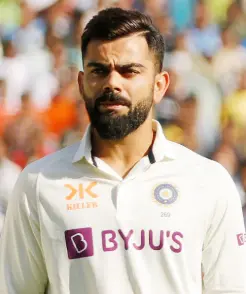The current Test captain of the Indian men's cricket team is Shubman Gill. After Rohit Sharma and Virat Kohli both bid farewell to red-ball cricket earlier this year, the BCCI announced on May 24, 2025, that Gill would take over as the new Test captain, with Rishabh Pant appointed as vice-captain. His first assignment as captain was to lead the team in a 5 match Test series in England. Gill quickly made his mark by securing a series victory and scoring a crucial century during the England tour, achievements that have validated his appointment as captain.
At merely 25 years old, Shubman Gill, frequently referred to as the "Prince of Cricket," has already established himself as one of India's most reliable top-order batsmen across all formats. He made his international debut in January 2019 against New Zealand, and at the age of 23, he set a record by becoming the youngest player in ODI history to achieve a double century. Since that time, he has consistently demonstrated his outstanding skills in significant tournaments, including the ICC Champions Trophy 2025. His extraordinary accomplishments at such a young age have garnered him considerable recognition from the BCCI, positioning him as the obvious successor to Rohit Sharma and Virat Kohli.

The appointment of India's Test captain is not determined by player voting, but rather by the BCCI and its Men's Selection Committee. The current chairman of the committee is Ajit Agarkar. It was this committee that officially announced Gill's appointment as Test captain in BCCI's press release on May 24, 2025.
Historically, the role of the selection committee has been defined as not only picking squads but also naming the captain for each format. This has been consistently highlighted by leading Indian media outlets. For example, during the Asia Cup squad announcement in August 2025, the traditional BCCI practice of having both the captain and the selection committee chairman jointly present at the briefing once again underscored this system.
The answer is Virat Kohli. From 2014 to 2022, Kohli led India in 68 matches, winning 40 of them, the most by any Indian Test captain, with a winning percentage of 58.82%. This record places him among the most successful captains globally. When he announced his retirement from Test cricket in May 2025, outlets such as Reuters and The Times once again emphasized this remarkable milestone in his career.

He ushered India into a new red-ball era centered on fitness and fast bowling. With 40 wins, 17 losses, and 11 draws in 68 matches, Kohli remains India's most successful Test captain. His tenure saw India emerge as genuine contenders overseas, including two appearances in the World Test Championship finals, marking a defining period in Indian cricket.
In 60 matches, he secured 27 wins. Dhoni played a crucial role in home dominance and transition phases, ensuring that the younger generation could step up in red-ball cricket. His captaincy built the foundation on which Kohli's era could accelerate.
With 21 wins in 49 Tests, Ganguly instilled a fearless and aggressive mindset at the turn of the century. His leadership gave India a fighting edge overseas and reshaped the team's identity.
Across 47 matches, he earned 14 wins. During the 1990s, his long tenure provided stability, although success abroad was limited. Still, he laid structural groundwork for future leaders.
In 24 matches, he registered 12 wins, 9 losses, and 3 draws. Rohit Sharma led India to the 2023 WTC Final and retired from Test cricket in May 2025. His captaincy bridged the post-Kohli transition and maintained India's competitiveness at the highest level.
One of the greatest openers in cricket history, Gavaskar's captaincy is often overshadowed by his batting legacy. Yet, with 9 wins from 47 Tests, he led with composure during a low-scoring era, teaching India the art of resilience and survival.
Captaining India in 40 Tests with 9 wins, Pataudi was appointed at the age of 21. He was the driving force behind India's first-ever overseas series victory in New Zealand in 1968, and his vision transformed India's cricketing spirit.
In 25 Tests as captain, he won 8, lost 6, and drew 11. Known as "The Wall," Dravid's calm and methodical leadership brought vital overseas series wins. His disciplined approach foreshadowed the strategic mindset he would later bring as India's head coach.
As of 2025, India's Test cricket has embarked on the Shubman Gill era. His selection aligns with the established BCCI protocol, where the national selection committee designates the captain. On the field, India is evolving from the stability experienced during the Kohli–Rohit years towards a new long-term vision under Gill's leadership.
Historically, Kohli is distinguished with 40 victories, followed by Dhoni with 27, Ganguly with 21, Azharuddin with 14, and Rohit with 12. While legends such as Gavaskar, Pataudi, and Dravid may have fewer wins, they remain iconic figures due to their significant contributions and groundbreaking achievements during their respective eras.
With Gill already demonstrating his capabilities in overseas conditions and securing a series victory in his inaugural assignment, expectations are elevated. His development as captain is an aspect to monitor closely, as it could potentially define the next remarkable chapter in India's Test cricket history.